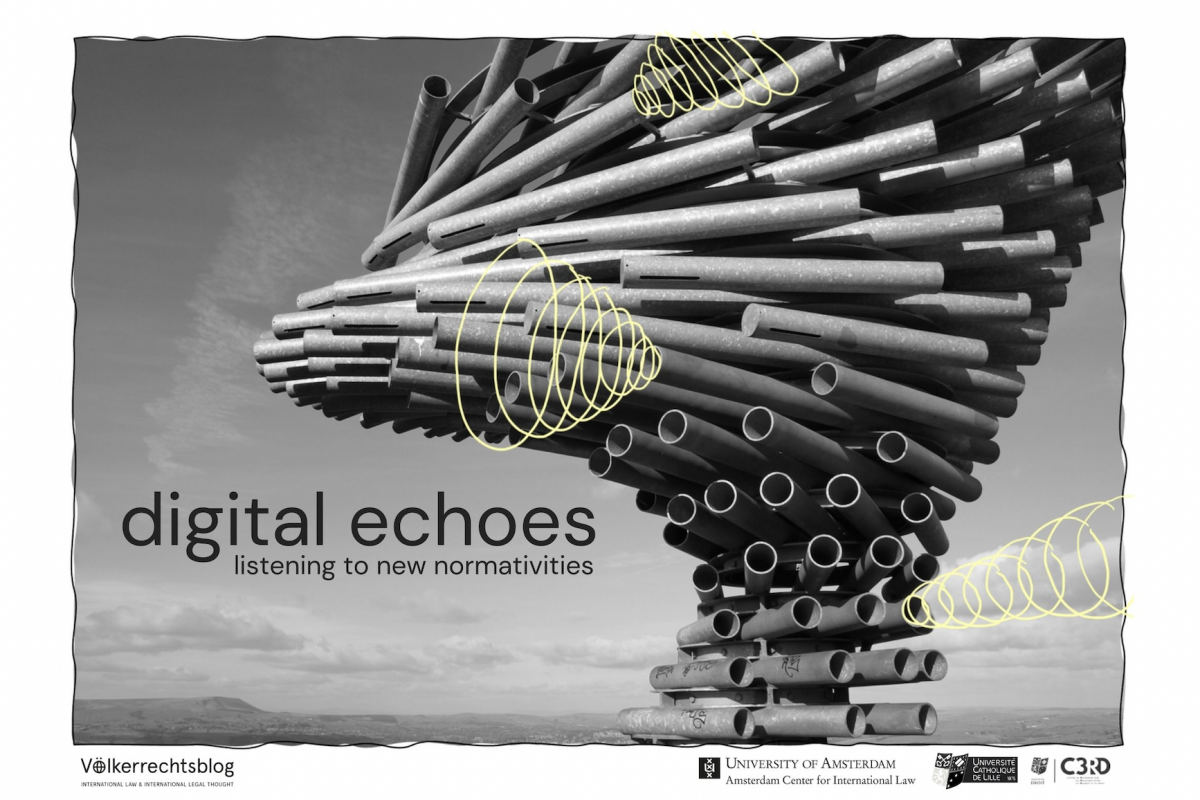8th Episode: Closing Conversation
In this final session of our first season Andrea Leiter and Delphine Dogot are joined by Daniela Gandorfer, lecturer at the University of Westminster, Mireille Hildebrandt, Professor for Interfacing Law and Technology at Vrije University of Brussels, and Gregor Noll, Professor of Law at the University of Gothenburg on a closing conversation discussing the theoretical implications for technology governance.
Additional reading material:
- Gandorfer, D. (2022). Down and Dirty in the Field of Play: Startup Societies, Cryptostatecraft, and Critical Complicity. Law Critique 33, 355–377. DOI
- Gandorfer, D. (2021). Breathing law – real imaginings of what it might mean to matter differently, Chapter 24 pp. 162-173 in: Goodrich, P. & Zartaloudis, T. (eds.) The Cabinet of Imaginary Laws, 1st Edition, Routledge. DOI
- Hildebrandt, M. (2023), Text-Driven Jurisdiction in Cyberspace in: Ó Floinn, M., Farmer, L., Hörnle, J. & Ormerod, D. (eds.) Transformations in Criminal Jurisdiction: Extraterritoriality and Enforcement, Hart Publishing. DOI
- Hildebrandt, M. (2017). The Virtuality of Territorial Borders. Utrecht Law Review, 13(2), 13-27. DOI
- Hildebrandt, M. (2013). Extraterritorial Jurisdiction in Cyberspace? Bodin, Schmot, Grotius in Cyberspace. The University of Toronto Law Journal, 63(2), 196-224. Link
- Noll, G. (2014). Weaponising neurotechnology: international humanitarian law and the loss of language, London Review of International Law, 2(2), 201–231. DOI
- Liljefors, M., Noll, G., Stor, D. (2019). War and Algorithm, Rowman & Littlefield International. Link
- Hui, Y. (2023). ChatGPT, or the Eschatology of Machines. e-flux Journal. Link
Download this episode.

Daniela Gandorfer is a lecturer at University of Westminster and an affiliate of the Ethics Institute at Northeastern University. Daniela’s research focuses on scientific and technological frontier spaces — such as quantum physics, blockchain technology & Web3, and psychedelics — and their implications for emerging modes of normativity and governance.

Mireille Hildebrandt is a Research Professor on ‘Interfacing Law and Technology’ at Vrije Universiteit Brussels (VUB), appointed by the VUB Research Council. She is co-Director of the Research Group on Law Science Technology and Society studies (LSTS) at the Faculty of Law and Criminology.

Gregor Noll is Professor for international law at the School of Business, Economics and Law at Gothenburg University. His research is mainly in the areas of migration law, the law of armed conflict, the theory of international law, and the effects of AI on law.

Andrea Leiter is an Assistant Professor at the Amsterdam Center for International Law working on technology enabled governance. She also co-founded the Dutch non-profit organization Sovereign Nature Initiative, working at the intersection of ecology, technology and economics.

Delphine Dogot is Associate professor of Law at Université catholique de Lille, based on the Paris-Issy Campus, and research lead in Digital and Emerging Technology at C3RD, Research Centre on Law & Risk. She is the founding Director of LeStudio, a collaborative and creative digital/law lab.
